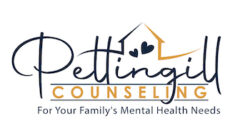Understanding Divorce Counseling: A Guide to Navigating Separation
Divorce can be one of the most challenging and emotionally taxing experiences a person can go through. Divorce counseling, also known as divorce therapy or separation counseling, provides individuals and couples with support and guidance during this difficult transition. This article explores the purpose of divorce counseling, its benefits, and when to seek help.
What is Divorce Counseling?
Divorce counseling is a therapeutic process designed to help individuals and couples navigate the emotional and practical aspects of separation and divorce. It provides a safe space for individuals to express their feelings, process grief, and develop coping strategies as they adjust to life changes. Divorce counseling can be beneficial not only during the divorce process but also after it, as individuals work to rebuild their lives.
Key Components of Divorce Counseling
- Emotional Support: Counselors provide a compassionate environment where individuals can express their feelings of grief, anger, fear, or confusion. This emotional support is vital for processing the pain of separation.
- Understanding the Process: Counselors help clients understand the emotional stages of divorce, which can include denial, anger, bargaining, depression, and acceptance. Recognizing these stages can normalize the experience and provide clarity.
- Coping Strategies: Counselors teach practical coping techniques to help individuals manage their emotions, reduce stress, and navigate the challenges of divorce. These strategies may include mindfulness practices, journaling, and self-care routines.
- Communication Skills: For those who are co-parenting or dealing with ongoing communication with their ex-partner, counseling can help improve communication skills and conflict resolution techniques.
- Future Planning: Counselors assist clients in setting goals for their post-divorce life, including career aspirations, personal development, and co-parenting strategies.
Benefits of Divorce Counseling
- Emotional Healing: Counseling provides a space for individuals to process their feelings, allowing for emotional healing and closure.
- Improved Coping Mechanisms: Clients learn effective strategies to manage stress and navigate the emotional turmoil associated with divorce.
- Better Communication: Counseling can enhance communication skills, which are crucial for co-parenting and reducing conflict with an ex-partner.
- Support for Children: Divorce counseling can also benefit children, providing them with a space to express their feelings about the separation and learn coping strategies.
- Empowerment: Through counseling, individuals often gain a clearer sense of direction and empowerment, helping them to rebuild their lives with confidence.
When to Seek Divorce Counseling
Consider seeking divorce counseling if:
- You are experiencing overwhelming feelings of sadness, anger, or anxiety related to the divorce.
- Communication with your ex-partner has become contentious or unproductive.
- You have children and are concerned about their emotional well-being during the transition.
- You are struggling with practical decisions related to the divorce, such as finances, custody, or living arrangements.
- You feel stuck in the divorce process and need support in moving forward.
Conclusion
Divorce counseling offers valuable support for individuals navigating the complexities of separation and divorce. By providing emotional support, practical coping strategies, and improved communication skills, counseling can help individuals heal and move forward with their lives. If you or someone you know is facing divorce, seeking the guidance of a qualified divorce counselor can be an essential step toward a healthier, more positive future.

